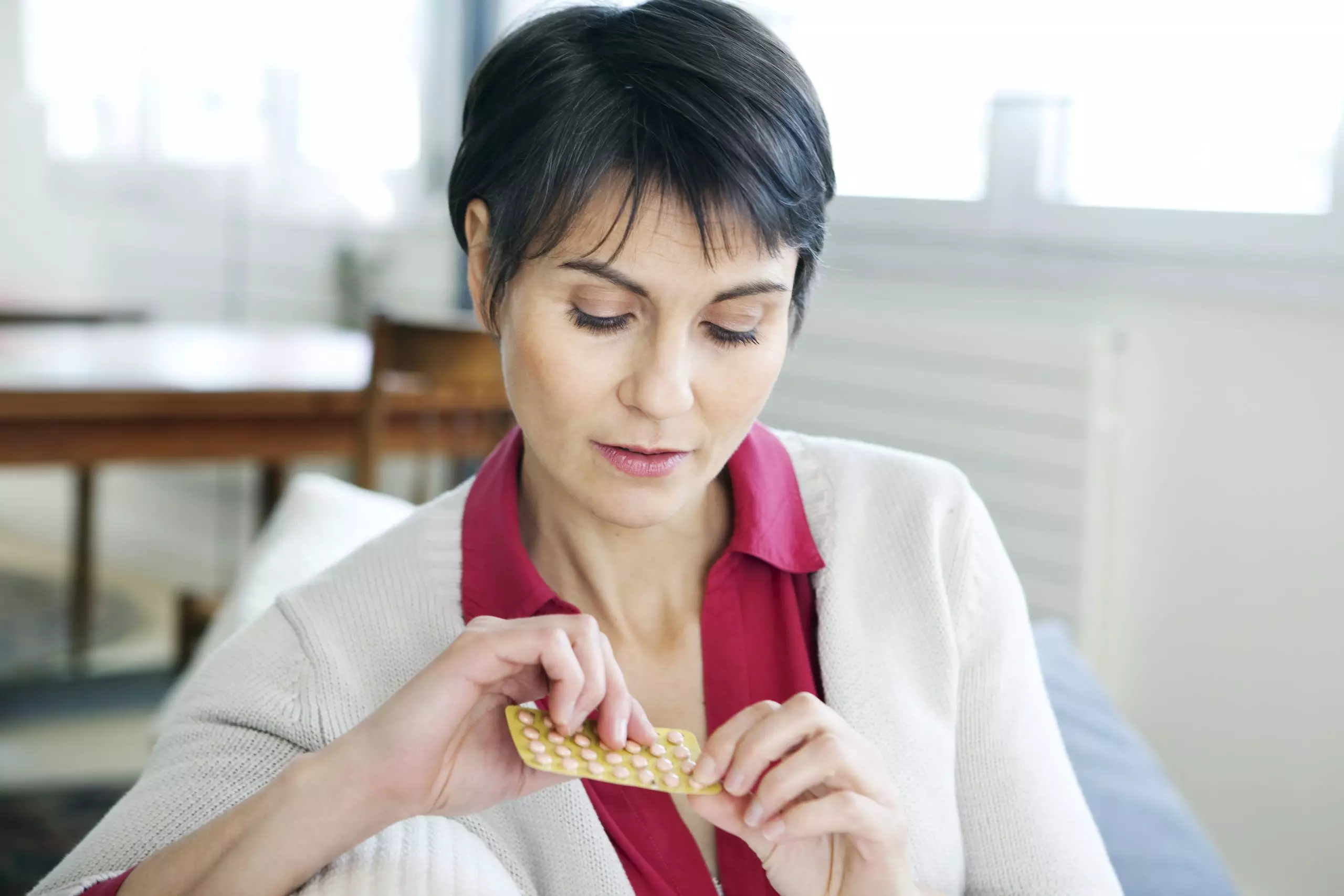What You Can Do When Hot Flashes Hijack Your Life
Hot flashes (called night sweats when they occur while you’re sleeping) are a common symptom of perimenopause, and they can persist for ten years or more. While hot flashes are mild or infrequent for some women, others find that they interfere with work, social interactions, and similar daily activities. If your hot flashes disturb your quality of life, here are some steps you can take.

Hot flashes are the most common symptom of the menopausal transition.
(This image is from Shutterstock.)
Lifestyle Hacks
Simple lifestyle hacks may be enough to prevent the need for medications. To manage hot flashes during the day, you could dress in breathable fabrics and light layers that you can remove as needed and carry a portable personal fan.
To avoid night sweats, try:
- Sipping cold water before going to sleep
- Lowering the temperature on the thermostat in your bedroom
- Using layers of light covers that can be folded back during the night
- Directing a small fan just on your side of the bed
Looking for support on your menopause journey?
You're not alone! Find expert tips, shared stories, helpful resources, and a supportive community of women who understand.
General steps that you can take to manage menopausal symptoms and support your overall health and wellbeing include:
- Avoiding alcohol, spicy foods, and caffeine
- Quitting smoking
- Achieving and maintaining a healthy weight for your frame
- Engage in mind-body practices such as mindfulness meditation, yoga, and hypnotherapy
You can also document any apparent triggers for hot flashes, along with your symptom severity, to help you and your doctor make effective decisions concerning symptom management.
Non-Hormonal Medications
Sometimes life hacks alone aren’t enough to effectively manage hot flashes; however, not everyone wants or is able to start hormone therapy. Fortunately, some non-hormonal medications are available.
The U.S. FDA has approved the use of paroxetine, a selective serotonin reuptake inhibitor (SSRI) antidepressant, for off-label use to treat hot flashes. Other antidepressants are undergoing research for this use, as well.
Antidepressants used to treat hot flashes are generally taken in lower dosages than when they are used to treat depression. Speak with your doctor about the pros, cons, and appropriateness of antidepressant use for your symptoms.
Non-proven Herbs and Supplements
Perimenopausal and post-menopausal women make up a huge target market for companies selling herbal supplements and compounds touted as therapies to treat menopausal symptoms. These include black cohosh, red clover, soy isoflavones, and others.
Some people claim they work, but their safety and effectiveness are not supported by rigorous scientific studies, and they have not been approved by the FDA as a treatment.
Supplements can interact with medications you may be taking and even with some foods. Some can even increase your risk for liver damage and other health complications. Speak with your doctor and pharmacist before using herbs or unproven tablets, creams, lotions, etc., to relieve your hot flashes.
Phytoestrogens are also purported to reduce hot flashes and other symptoms of menopause. They are naturally found in some cereals, vegetables, and legumes, such as soy. Though they weakly mimic estrogen in the body, studies have not proven them to be consistently effective.

Phytoestrogens are plant-derived compounds found in a wide variety of foods, most notably soy. A litany of health benefits including a lowered risk of osteoporosis, heart disease, breast cancer, and menopausal symptoms, are frequently attributed to phytoestrogens but many are also considered endocrine disruptors, indicating that they have the potential to cause adverse health effects as well.
(This image is from Shutterstock.)
Menopausal Hormone Therapy
The fluctuation in, and gradual decline of, your hormone levels, particularly estrogen, is what appears to cause menopausal symptoms such as hot flashes, vaginal dryness, and sleep disruption. Many women find that using menopausal hormone therapy (MHT) to re-balance their hormones helps relieve these symptoms.
MHT can be taken or administered as a pill, patch, ring, implant, gel, or cream. Some forms are considered safer for women with certain health concerns. Hormone therapy can potentially place you at higher risk of:
- Heart attack
- Stroke
- Blood clots
- Breast cancer
- Gallbladder disease
- Dementia
Risks, optimal forms, and outcomes of MHT can vary depending on your age, health status, underlying medical conditions, and whether or not you’ve had a hysterectomy. Discuss the benefits and risks of different forms of MHT with your healthcare provider.

Hormone replacement therapy is medication that contains female hormones. You take the medication to replace the estrogen that your body stops making during menopause.
(This image is from Shutterstock.)
*National Institutes of Health. (2021, Sep. 30). Hot Flashes: What Can I Do? https://www.nia.nih.gov/health/hot-flashes-what-can-i-do

